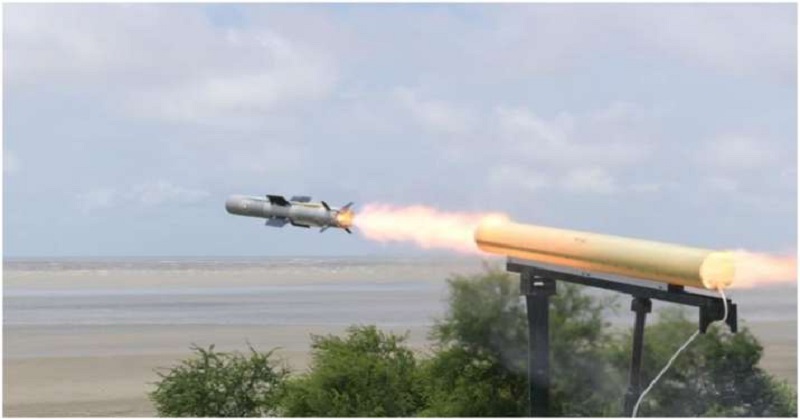
India successfully conducted two rounds of helicopter-launched Nag missile (HeliNa), renamed as Dhrubastra from a defence base off Odisha coast in compliance with coronavirus safety protocols.
Developed by Defence Research and Development Organisation (DRDO), the anti-tank guided missile meant to be launched from a helicopter was flight-tested from a static launcher positioned at Integrated Test Range (ITR) under simulated conditions on July 15 and 16.
HeliNa has been named after the Advanced Light Helicopter (ALH) Dhruv, which will be equipped with the missile. Fitted with imaging Infra-Red seeker, Dhruvastra operates in ‘lock-on before launch mode’.
A defence official said the missile was test-fired from a ground-based launcher as a mandatory requirement with respect to safety. “The mission was successful. The test proved that the system has become more stable. The missile would soon be tested from the ALH after a couple of more trials from the ground-based launcher,” he said.
Dhruvastra can be fired in two different modes – direct attack and top attack. Eight missiles can be integrated with the helicopter with four twin launchers specially designed for the weapon. Several trials of the third generation missile that operates on ‘fire and forget’ principle have been conducted from both the ITR and Pokhran firing ranges.
The missile can be launched from twin-tube stub wing-mounted launchers on board the armed light combat helicopters and advanced light helicopters. While Nag missile has a maximum range of 4 km, the HeliNa has an extended strike range of about 8 km.

Post Your Comments